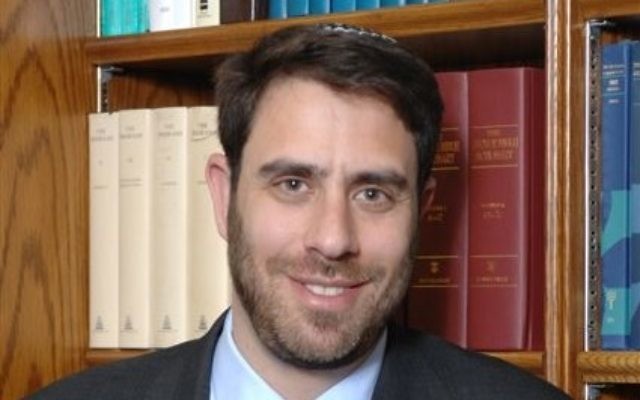Rights Will Highlight Reform Rabbis’ Agenda
More than 500 Reform rabbis will gather in Atlanta March 19 to 22 for the CCAR annual convention.
In the post-presidential-election atmosphere of fear, anger and increasing expressions of anti-Semitism, more than 500 Reform rabbis will gather in Atlanta from March 19 to 22 to discuss moral courage and civil rights at the Central Conference of American Rabbis annual convention.
Being held at the Loews Atlanta Hotel in Midtown, this year’s convention has the theme of “Being a Rabbi in Turbulent Times.” Attendees will discuss issues including anti-Semitism, immigration, racial and economic justice, and preservation of Earth’s resources for future generations.
“Postelection, our members have expressed concerns and sometimes fears for their communities, as well as for themselves personally and professionally,” said Rabbi Steve Fox, CCAR’s chief executive. “We will address these concerns by providing rabbis with the necessary resources with which they can return to their communities and congregations to more confidently address the issues they are facing and at the same time feeling supported in their leadership and service.”
Although Atlanta was selected as the location for this year’s conference several years ago, the timing couldn’t be more appropriate in the current political climate because the city boasts, among others, the National Center for Civil and Human Rights, the Martin Luther King Jr. National Historic Site, the King Center, and Ebenezer Baptist Church, where King and his father preached.
“It’s really an opportunity we want to take advantage of,” said Rabbi Peter Berg, the senior rabbi of The Temple. “Our colleagues are really excited to be here and experience the moral courage of the leaders of Atlanta.”
The Temple, Atlanta’s oldest synagogue, will host a special showing of “The Temple Bombing,” a new Alliance Theatre play about the dynamiting of the Midtown synagogue in October 1958 by people who didn’t like Rabbi Jacob Rothschild’s support of the civil rights movement.
When Rabbi Rothschild arrived in Atlanta from Pittsburgh and saw segregation firsthand, he was “so disheartened by what he saw with separate drinking fountains and bathrooms,” Rabbi Berg said. “He dedicated his entire career to racial (issues).”
Rabbi Rothschild became friends with King after The Temple was bombed, and the synagogue and Rabbi Berg have partnered with Ebenezer Baptist Church and its senior pastor, the Rev. Raphael Warnock, in pulpit exchanges and a joint choir called Voices for Justice.
The choir will perform for the first time during the CCAR convention, and Ebenezer Baptist’s Mary Gurley will sing “My Living Shall Not Be in Vain,” which she sang at King’s funeral and sings every year at The Temple.
“It’s special to us at The Temple because of our historic relationship with Ebenezer Baptist,” Rabbi Berg said.
In addition to civil and human rights, Reform rabbis at the conference will explore spirituality and study Torah. They will have the opportunity to study at Emory University, listen to world-renowned scholars and participate in professional development workshops.
Featured speakers are scheduled to include Dana Bash, CNN’s chief political correspondent; Cornell Brooks, the president and CEO of the NAACP; Richard Cohen, the president of the Southern Poverty Law Center; and Deborah Lipstadt, the Emory professor of modern Jewish history and Holocaust studies who was featured in last year’s feature film “Denial.”
“The world in which we live is changing rapidly, and the political climate in the United States, Israel and around the world is creating opportunities and challenges to leading,” Rabbi Fox said.
“This year, as in past years, we’ll be tackling a broad array of issues, both big picture and practical. … Much of our itinerary this year will also focus on what it means to be a rabbinic leader in today’s turbulent political climate.”
The convention will feature a lecture on the United States’ relationship with Israel by an Israeli rabbi and a Palestinian leader who promote dialogue and trust between Israelis and Palestinians in the West Bank. A series of workshops will address how to create a culture of dialogue with Israel.




comments